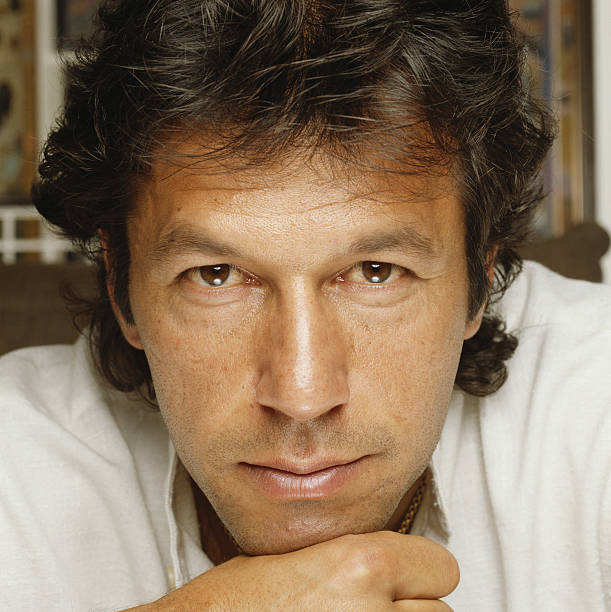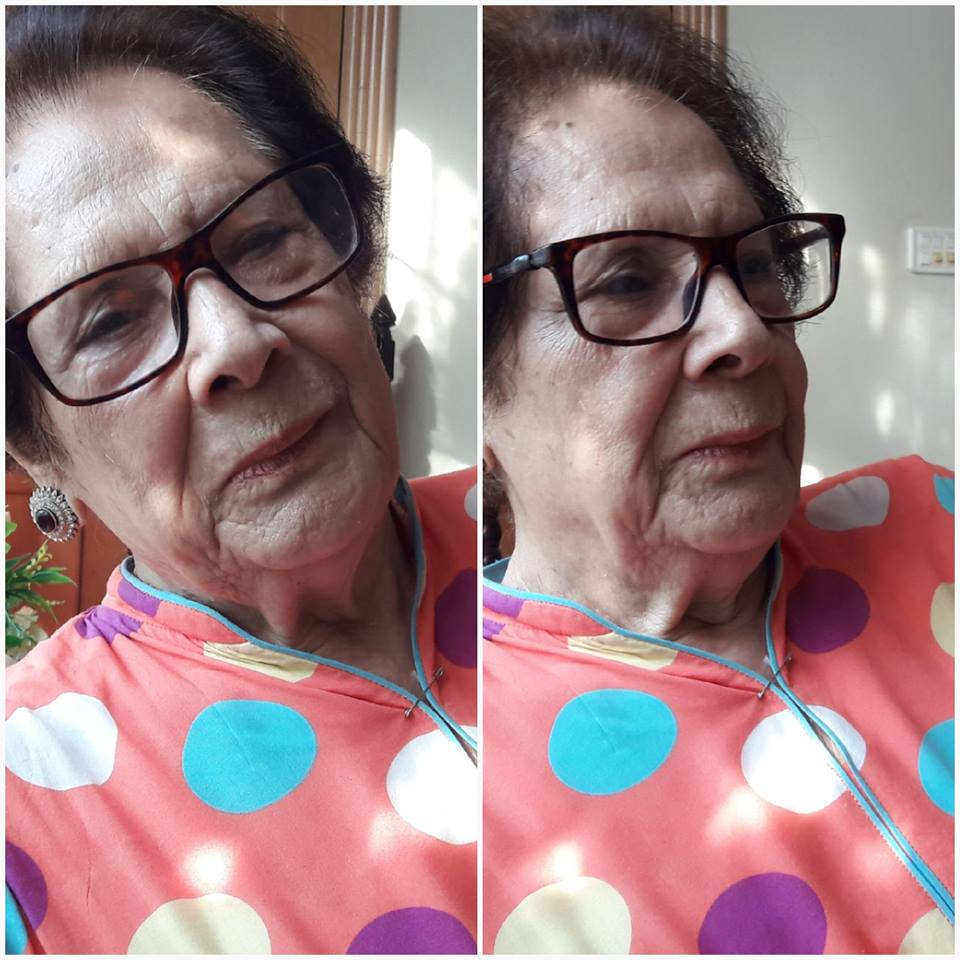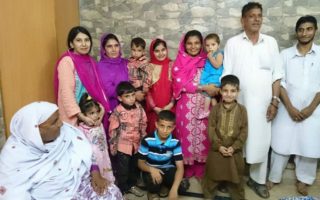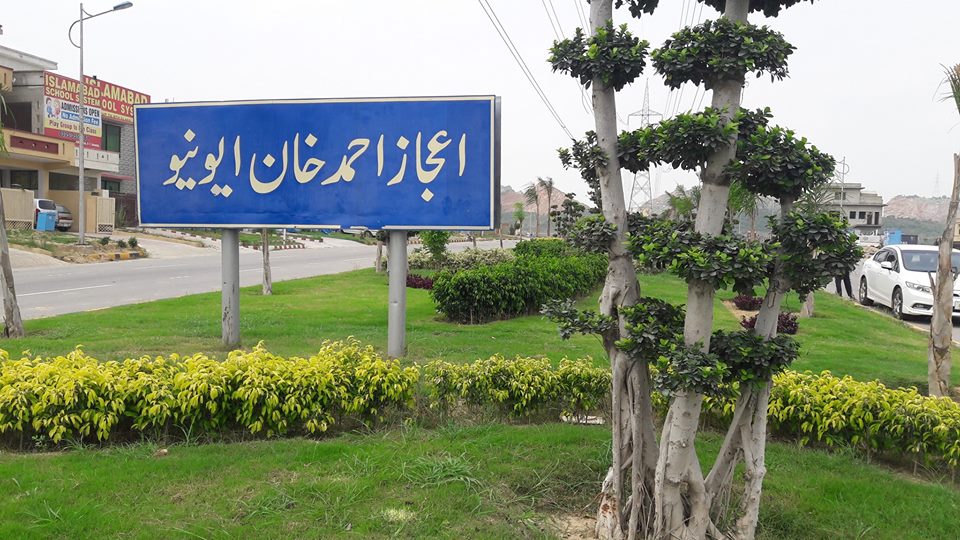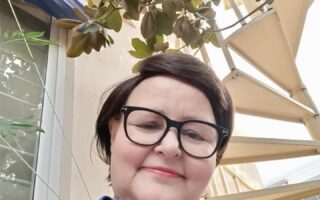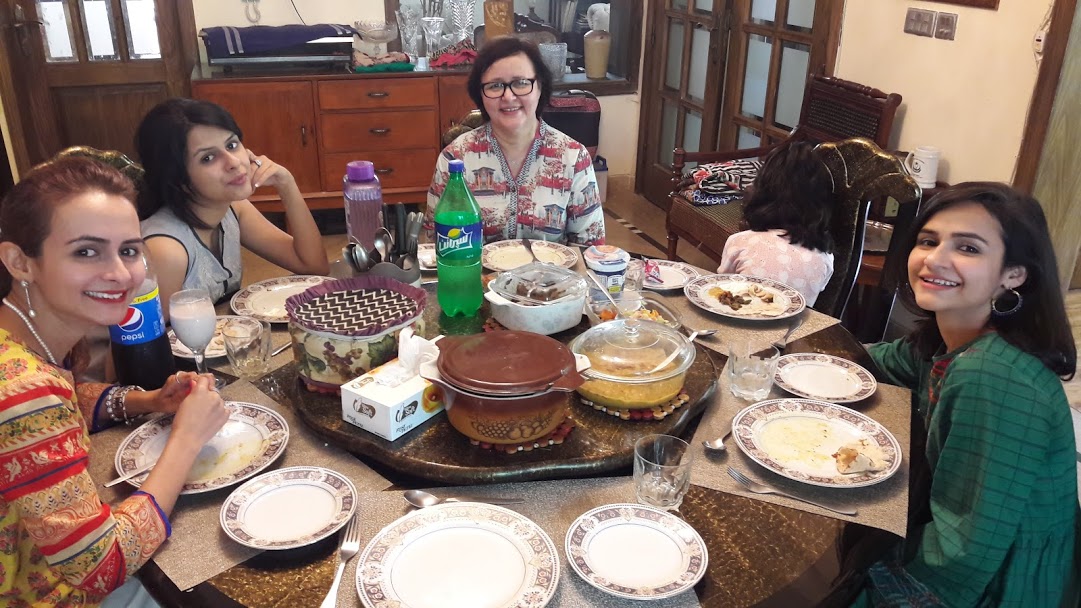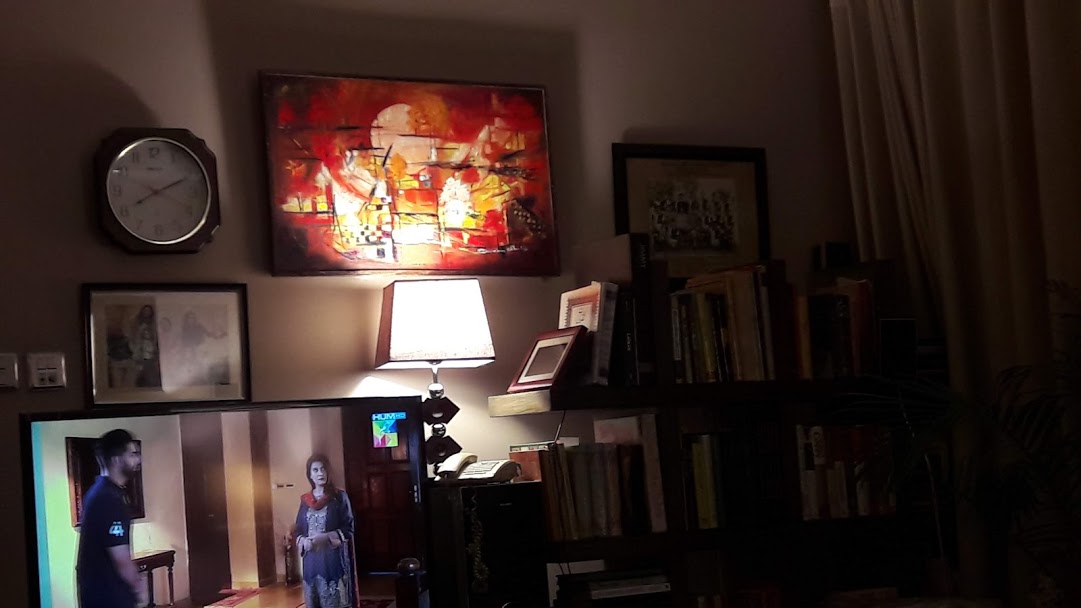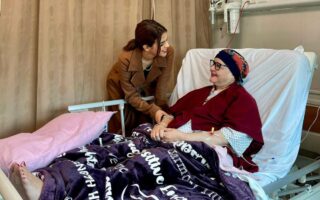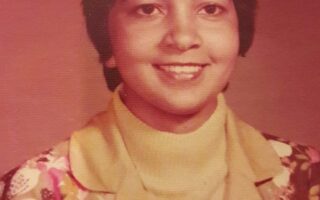
Hi Everyone!
Haseena Moin has been one of my most favorite Urdu playwrights, she has created some of the most memorable characters. As I grew up in the seventies, in school and college, her characters and their dialogues were part of our daily speech.
It is good, that lately Urdu has been accepted as a language of our times, internationally as well. It is understood in most parts of the world, as Pakistanis are everywhere now, and Indians understand it very well.
Everyone knew and loved Haseena Moin’s characters and personalities. Frankly it was the best entertainment of our times. What with just one PTV channel, Haseena Moin’s plays were the epitome of all that PTV stands for! It was her dialogues and plays that were brought to life by actors who themselves became legends due to acting in them.
It is a fact that it was the PTV plays which have been used in Indian Academies for acting. Hasina Moin was a living legend of PTV. Her plays had humor of a class that was unmatched.
Let me share with you the time when I interviewed her, and I wrote this article, which was printed in The Nation, in 1998. Though the interview took place in Karachi, It got published from Islamabad. At the time of this interview, I was in Karachi, when my husband was posted there for his Air War College, in 1997. I had been trying to get an interview of Haseena Moin for a long time. Of course, I finally got to speak to her when we were about to leave in 1998! Here is what I wrote in the article:
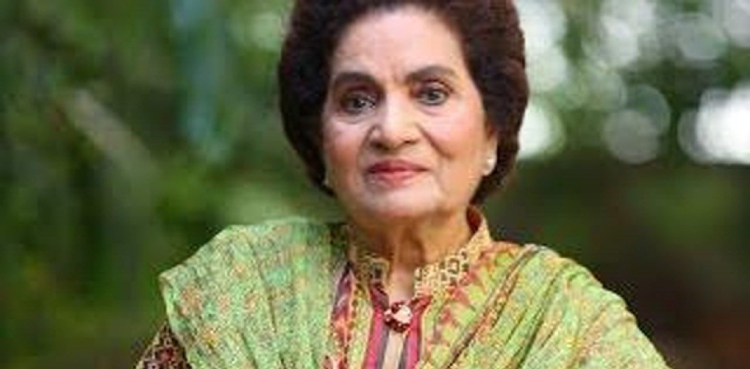
It seems as if Murphey’s Law was in full action – everything that could go wrong – did! My tape recorder, and print out of questions to be asked, suddenly disappeared on the day of the interview. The camera was without a film. And when we went to the electronic shopping area of Karachi – all the shops were closed due to a strike in the city (no chance of buying a new tape recorder or getting a film.)
To make it all more exciting, my husband was furious for making an appointment with Haseena Moin on the LAST day of our stay in Karachi. ‘But look,’ I said, (we were past the ‘darling’ stage) ‘She was busy with the shooting of a play before that, and this was the only opportunity she had!’
‘In that case it could have been left for the future – couldn’t it?’
No! – I said with quiet determination. (Admiring his tolerance!)
‘Okay then, I have to go for some work. I don’t know when I’ll be free, can you get to Shafqat’s place on your own? – I’ll pick you up from there in the evening!’
‘Fine’ I said.
In my present mood I could get to Timbuktu on sheer will power! I was happy that I was on time for the Interview; Here I was right at Haseena Moin’s sister’s residence, located behind Marriot hotel, (her own house was being renovated.) As I went towards the entrance, Haseena Moin herself came out. She looks exactly as she does on television. She is about five feet three inches tall… And has a pleasant personality. We walked in and the interview began.
S: Lets start at the beginning, where were you born?
H.M: In Kaanpur, India. My father was a civilian employee in the army and he later moved to Rawalpindi, on posting in 1948. I am one of five sisters and three brothers, so we were a big family.
S: Was there a writer in your family?
H.M: No, but my sister became one, she is married so she did not get much time to follow her interest. My father loved books. And he taught my mother to read after their marriage. There was a lot of interest in Urdu literature in my family.
S: How did you start writing plays?’
H.M: I started quite by accident. In 1964, there was a circular in College from Radio Pakistan asking for a play from the school. I sent a 20 minute play called ‘Patrian’. The producer was Agha Nasir and it won the first prize.
‘It was a play set in a train compartment, where a boy and a girl happen to be together. Each one is feeling sad after saying farewell to their dear ones. During the trip they fall in love. It was a comedy and well received. Then Radio Pakistan requested me to write more plays for it’s ‘Studio 9’.
S: How did you finally, get into television?
H.M: ‘It would be interesting to note, that to this day I have not had to go to anyone. My debut into the television play writer’s world took place in ’69 or ’70 when Iftekhar Arif (the well known intellectual and poet) was the Script Editor of PTV, he selected a play of mine from Radio for television.
‘ The General Manager Kunwar Aftab called me and asked me to re-write the play for TV. This play was called ‘Naya Rasta’ (New path) in this play Shakeel and Neelofar Abbassi were the main actors. After that there was no looking back. The next play was in ’72 called Happy Eid Mubarik (Shakeel and Neelofar Abbassi again!)
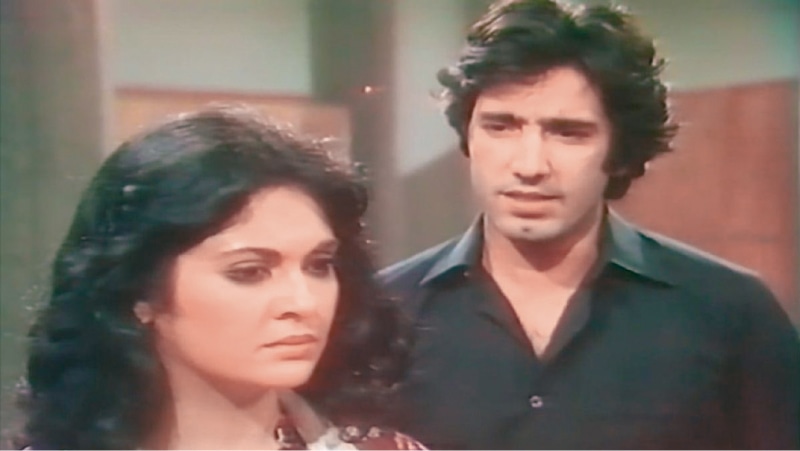
S: Which is your favorite play?
H.M: Ankahi! And then there are Uncle Urfi, Tanhaiyan and Dhoop Kinaray.
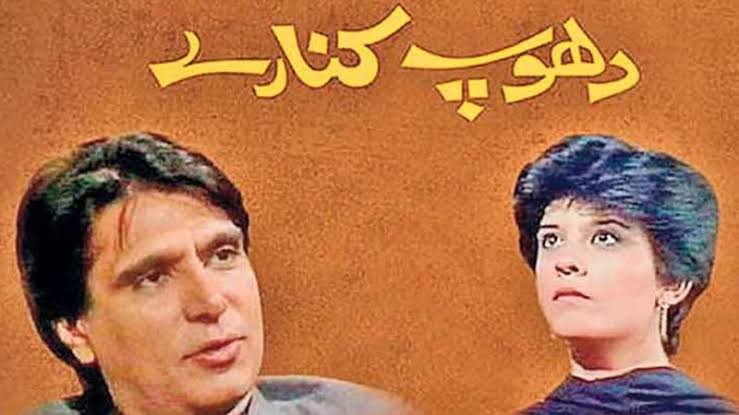
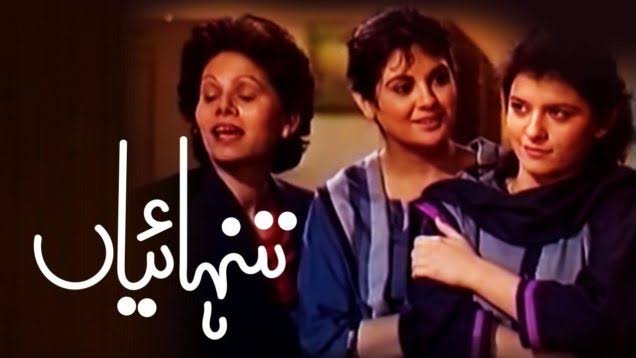
S: Who were the directors?
H.M: The director in most cases would be Mohsin Ali and Shireen Khan. These two had a superb understanding and managed to work together so perfectly, that no one would be able to differentiate between their work. They worked together on some episodes, and individually on others.
‘The fact that the director and writer would be on same wavelength made all the difference. I’ve always seen that when there is a good relationship between the members at the set, it is bound to overflow into the play itself.’
‘During the days when Ankahi was being prepared, there would be so much fun on the sets. The offices of both directors would be buzzing with activity. There would be noise, arguments and a lot of leg pulling.
The dress of each character would be described in the script. The actors were keen to follow the script to the minutest detail. They would be ready to go to the tailors of Tee Jays not once but three times just for the trial sessions. So, that when finally, the actors and actresses wore the dress it really looked as if it belonged to them, and fitted not only the actors but the scene as well.
‘There was no attention paid to payments. Everyone was mainly concerned with the success of the show. Now a days I find the young actors and actresses just coming minutes before the scene, wearing anything they like and they are not concerned about how the dress or make up will fit into the actual scene.’
‘Sahira Kazmi directed Dhoop Kinaray, and as usual she did an excellent job of it.
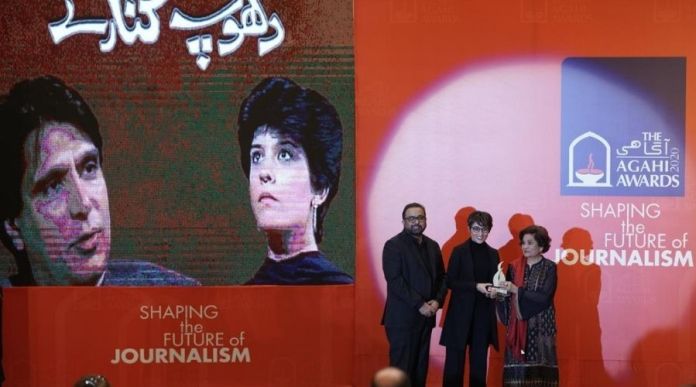
S: What difference do you find in the work of today and the past?
H.M: In the serials of the past, the actors and actresses paid a great deal of attention to understanding their roles. Jamshed Ansari would work for days with myself and the director trying to understand the role.
‘Behroze Sabzwari spent over a week trying to get his role of ‘Kabacha’ just right. He was to be a very intelligent and serious person, so serious that he looked funny. This was a difficult role and Behroze did full justice to it. The whole team helped him in understanding the role so that it would be just right.’ (The smile on Haseena’s face showed her nostalgia.)
‘In those days the actors learned their scenes by heart. Rehearsals would be for three days. These rehearsals were with three cameras present which is called ‘dry rehearsal’. When the time came for the actual shooting of the scene, it was shot in one go. Due to this, there would be a great deal of continuity and flow. The expressions on the faces of the actors and actresses were more natural and expressive.
‘Now a days the scenes are shot with many breaks in between. No time is given to rehearsals. No time is given for things that matter. Naturally the quality of work is bound to suffer.’

‘Actually the producer (who is the Captain of the ship) must have complete harmony with the writer. Once he understands exactly what the writer is trying to convey, only then he can make it all happen. It is also interesting to note, that most of my series have been televised by two directors at a time. Mohsin and Shireen directed many of my plays. Kazim Pasha also was assistant director in many serials.’
S: What happened about your serial on the PAF, starring Marina Khan and Directed by Sahira Kazmi?
H.M: Well, my script was ready, and the filming had begun two years ago.
S: I was in Sargodha PAF Officer’s Colony, and saw most of the scenes being shot on location in the heat of the summer of 1996. It seems there was a difference of opinion between Sahira Kazmi and Fakhre Alam and after an exchange of some colorful words between them, he walked out.
H.M: Somehow, things got bungled up and it seems that now the project has been shelved.
S: Your latest series ‘Janaay Anjanay’ somehow does not seem like your usual light humorous work. This is very serious specially, the start where the mother of the heroin dies of cancer.
H.M: Actually, this story was begun with a real story. This is a true case, a girl loses her mother and then is not allowed to stay with her father. And I was keen to portray her situation.
S: Why do you think it did not ‘click’ the way your other series did?
H.M: Because the director Javed Fazil has dealt with the story in a ‘filmi’ style. He also removed some of the ‘difficult’ scenes from the script. In the end, the play was reduced from fifteen to thirteen episodes and the ending was changed. Perhaps I would not have let it happen if I had been there, but I had to come back to Karachi from Mauritius where the shooting was taking place, and meanwhile they made the changes.

S: What is your advice to PTV?
H.M: Reduce the number of plays. Improve the quality. They need to improve the working conditions, provide proper equipment. In foreign countries there is a floor manager on the television sets, and he organizes everything. This is very important. There needs to be better coordination between everyone, which is lacking in present system.
S: But previously, our actors managed to come up with excellent plays in spite of lack of resources?
H.M: Previously, the lack of resources was made up with dedication. Now the dedication is missing. It is also because the cost of living has become so high that one person cannot manage in so little, he has to do more than one job, and this naturally affects the quality of his work. So, I believe they should pay better. After all, a person can only do one thing well at a time.
‘Another thing that I would insist with PTV is to stop with quota system. How can there be quota system with creative work? Previously, there was no such thing, with the result only very talented persons were working there.’
One hour flew by, and it was time to go. Luckily for me, Haseena Moin kindly agreed to have me dropped at my friend’s place. Thanks a lot Haseena Moin.
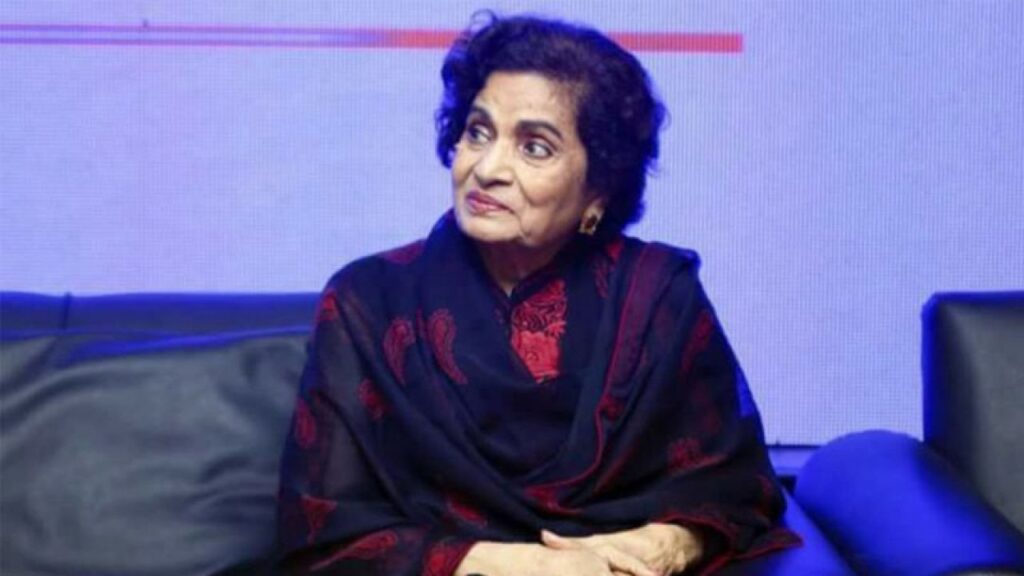
Note: All photographs have been taken from online sources.
#Haseenamoin, #Ankahi, #Dhoopkinaray, #Tanhaiyan.


